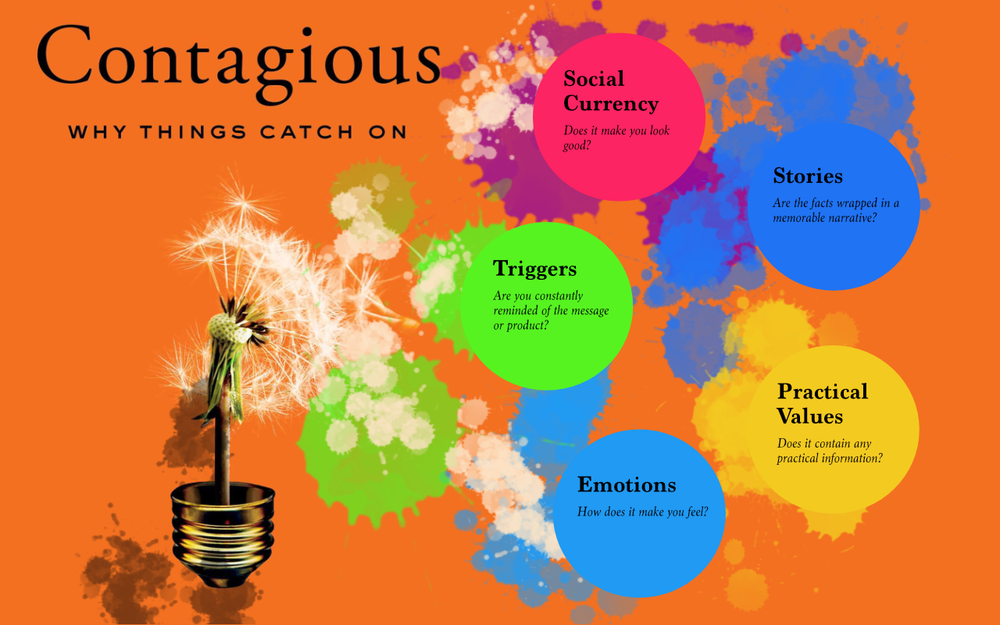
Contagious : Why Things Catch On (Book Review)
If you want your product, service or cause to become the talk of the town – or the talk of the Internet – don’t rely on advertising.
People trust their friends’ and acquaintances’ opinions far more than paid promotions. The challenge is getting your offering on the tip of everyone’s tongue. Marketer Jonah Berger explains why some topics blaze their way around the world while others are ignored. His solutions go beyond social media; as he says, Twitter, Tumblr and Facebook are mere tools. If you can forgive him for inventing unnecessary extra jargon (like “inner remarkability”), Berger will show you how to turn your product or cause into a topic of public conversation, a subject that everyone wants to discuss.
Contagious Key Take-Aways
– To promote your product, service or idea, generate “social contagion” – voluntary, widespread word of mouth.
– Every day, people have many conversations about products and brands, 93% of which happen offline.
– Six “principles of contagion” affect whether people talk about your product :
First, use “social currency” by making people feel influential when they discuss it.
Second, remind people of your product, service, cause or idea with “triggers.” These hints are more effective when they are familiar.
Third, “emotion,” whether positive or negative, can incite people to action.
Fourth, go “public”; make sure your activities and products are highly visible.
Fifth, provide information of “practical value” to prompt people to spread the word.
Sixth, “stories” are the best and most effective way to convey information, because people think in narratives.
Apply these principles to promote almost any product or endeavor at a low cost.
Hot or Not?
When a product, idea or topic becomes the newest hot talking point, it has gained “social contagion”; this is a good thing, and it can happen spontaneously. For example, a new house of worship can naturally experience a boom of interest within a community, or a pressing political cause can inspire people to get involved. But if you’re a marketer seeking ways to make your product, service or idea catch on, that fire can be much harder to ignite.
Products can become trendy if they are superior to their competitors, if they cost less, or if their ads are more clever and effective. But those elements alone can’t explain why some ideas and
items become contagious and others don’t.
Word of mouth – that magic surge of communication and buzz that happens when people talk with their friends, family and associates about products or brands – provides much more effective promotion than even the best or most expensive advertisement. Social influence is more convincing than a paid testimonial and it benefits from being more targeted. Usually, folks who discover a product and like it will tell other people who they think will appreciate it.
Word of mouth is ubiquitous and affordable: You don’t even need a computer or web connection to participate. Since 93% of word of mouth actually happens offline, don’t assume that using social media is an end unto itself.
Facebook and Twitter are technologies, not strategies.
Your goal is to develop “contagious content” – viral ideas and topics that proliferate no matter who distributes them. You must understand why people talk about ideas, products or causes and how to draw that conversation to your product. To do so, put the following six “principles of contagiousness” (which
follow the acronym “STEPPS”) into action :
a) Social Currency
b) Triggers
c) Emotion
d) Public
e) Practical Values
f) Stories
You can put the six STEPPS to work for your product, service, cause or idea without spending a lot of money or hiring the world’s best ad agency. If your brand makes potential consumers feel important, appears frequently in their environments, evokes feelings, is clearly visible, is useful and helpful, and carries
a good story, it will become contagious.
GET YOUR COPY OF CONTAGIOUS HERE
Author
Jonah Berger, a business writer, teaches marketing at the University of Pennsylvania’s Wharton School of
Business.






